Aviation refers to the design, development, production, operation, and maintenance of aircraft. It plays a crucial role in transportation, commerce, defense and exploration, and facilitates the movement of people, goods, and services across local, regional, and global distances.
Ground support in aviation refers to the infrastructure, equipment, and services provided to aircraft while they are on the ground, both before and after flight. It encompasses the wide range of activities and resources necessary to prepare, maintain, and facilitate aircraft operations while they are stationed at airports or airfields.
Ground support services include:

AIRCRAFT MAINTENANCE
Ensuring the aircraft is in a safe and operational condition through regular inspections, repairs, and servicing.

BAGGAGE HANDLING
Managing the loading, unloading, sorting, and transportation of passengers' luggage to and from aircraft.

PASSENGER HANDLING
Assisting passengers with check-in, boarding, security procedures, and other related services to ensure a smooth travel experience.

FUELING
Supplying aircraft with the necessary fuel for upcoming flights.

CATERING
Providing food and beverage services to aircraft, including loading catering supplies onto planes.

GROUND POWER
Supplying electrical power and climate control to parked aircraft, particularly during turnaround times.

AIRCRAFT MARSHALING
Guiding aircraft to and from parking positions using hand signals or electronic signaling devices.
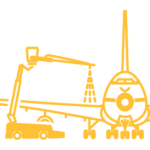
DE-ICING
Removing ice and snow from aircraft surfaces during adverse weather conditions.

GROUND TRANSPORTATION
Facilitating the movement of passengers and crew between terminals, gates, and aircraft.

SECURITY
Implementing security measures to ensure the safety and integrity of airport operations.

AIRCRAFT CLEANING
Performing cleaning and sanitization procedures on aircraft interiors between flights.

EMERGENCY SERVICES
Being prepared to respond to emergencies such as medical incidents, fires, or security threats.
Aviation ground support is vital for ensuring smooth airport and airline operations, and it helps provide passengers with a seamless and enjoyable travel experience. Ground support services prioritize aircraft, passenger, and crew safety through meticulous maintenance, inspections, and safety checks before and after flights. These services also streamline airport operations, minimizing turnaround times between flights and reducing delays in air travel. Furthermore, ground support significantly shapes the passenger experience by optimizing check-in, boarding, baggage handling, and terminal services.
Ground support personnel play a crucial role in maintaining aircraft integrity through routine inspections, repairs, and servicing, ultimately minimizing the risk of mechanical failures or malfunctions during flight.
More blogs about Aviation Ground Support:
Industries that Benefit from Aviation Ground Support
Importance of Casters in Aviation Ground Support
Common Applications of Casters in Aviation Ground Support
Factors to Consider for Casters to Use in Aviation Ground Support
Learn more about Aviation Ground Support:
Coming soon...



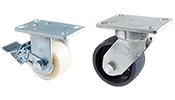
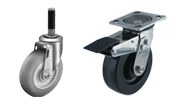
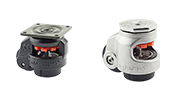
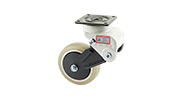
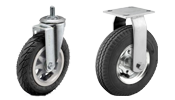



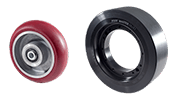


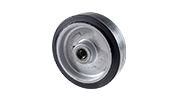




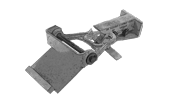

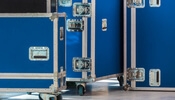
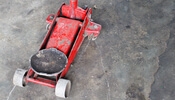
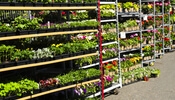




















 WORKSTATION
WORKSTATION DOLLY
DOLLY TROLLEY
TROLLEY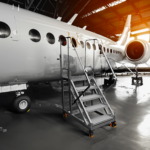 LADDER & LIFT
LADDER & LIFT CUSTOM EQUIPMENT
CUSTOM EQUIPMENT




































 DOLLY
DOLLY
 LADDER & LIFT
LADDER & LIFT












